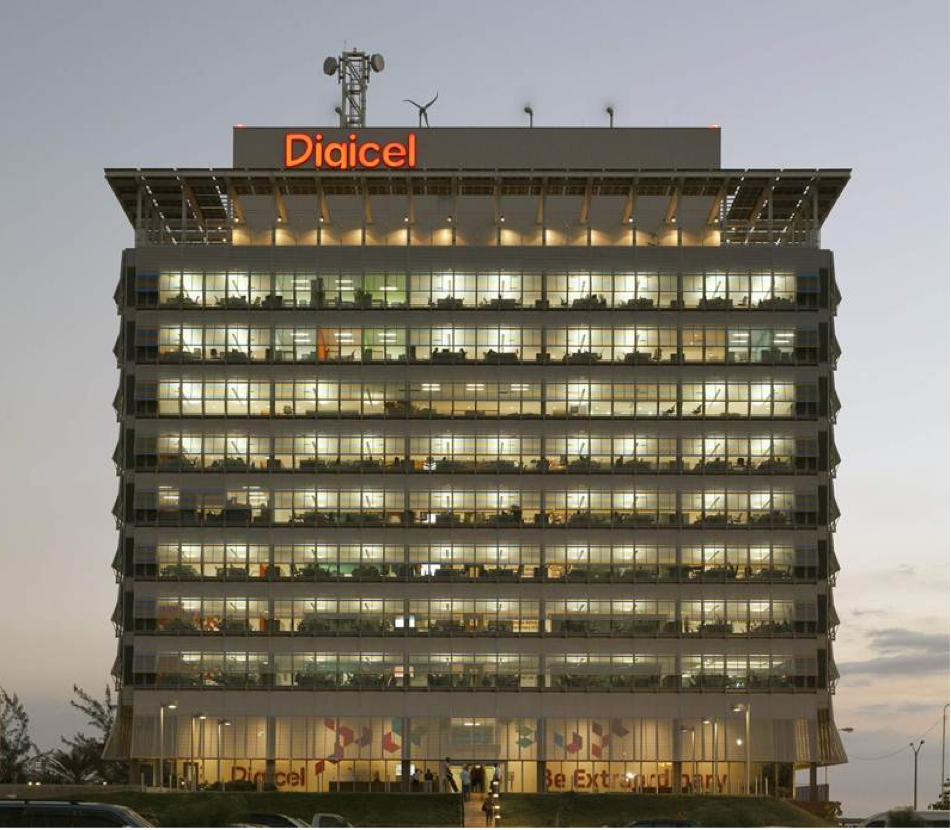
Regional telecoms giant, Digicel is reporting a poor second quarter in which COVID 19 continues to weigh down on its finances with revenue plummeting.
For the second quarter ended September, Digicel’s Earnings Before Interest, Tax, Depreciation and Amortization (EBITA) dropped by eight per cent to US$229 million (€192 million) for the September quarter compared to the same period in 2019.
On Wednesday (November 25), the company reported to its creditors in Ireland about the poor financial out-turns for the September quarter, as impacts associated with the novel coronavirus (COVID-19) pandemic weighs down on the business.
Digicel, which is owned by Irish billionaire Denis O’Brien, reported that its overall earnings fell by 13 per cent. However, earnings rose five per cent in the three-month quarter to the end of June, which is regarded as the height of the coronavirus crisis.
Service revenue declined by two percent to US$546 million on the year in the second quarter. A spokesman for the company when contacted by The Irish Times declined to comment on the figures.
Company incurred a big currency hit
Digicel, which is based in Kingston, Jamaica, also took a €11 million hit from currency weakness in some of its 33 markets across the Caribbean, Central America and Asia-Pacific against the US dollar.
Digicel, which incurred serious debt problems earlier this year moved immediately after its financial year-end in March to restructure its unsustainably high debt level of US$7 billion. This debt has ballooned following years of earnings decline, which led it to conclude a deal in June that saw bondholders write off US$1.6 billion of what they are owed.
This transaction, described by credit ratings agencies as a “distressed debt exchange” involved the creditors swapping their bonds for securities of a lesser value and has been. Last month Digicel set about rebranding and repositioning itself from its roots as a mobile company to rebrand itself, as a digital operator.
In doing so the company launched a series of apps and promising customers a powerful digital experience. Digicel is forecasting that underlying service revenue will decline at an annual rate of one to two percent in the current December quarter.
Its EBITA is projected to dip even further in the order of five to six percent to the end of December.
Digicel cash balance
Digicel ended the September quarter with US$356 million of cash on its balance sheet, aided by the receipt of US$114 million from French phone group, Orange. This money was paid out to Digicel to resolve an anti-competitive practices case in the French Caribbean.
The company is set to receive a further US$72 million from Orange in the current quarter. Digicel’s total debt stood at just over US$5.7 billion at the end of September, leaving it at 6.1 times the annualised EBITA with the ratio coming to between 6.2 and 6.3 times for the full year to March.
Last week, Digicel launched an offer to buy back some of the riskiest bonds that the company issued in its debt refinancing earlier this year. Digicel is now offering to pay as much as US$10 million to buy back up to a quarter of its US$203 million of convertible notes.
These notes can convert into a 49 percent stake in Digicel in 2023 at a deeply discounted rate of as little as 20 cent on the dollar. This latest move would see Digicel shave around US$50 million of its US$5.5 billion debt. It is likely there will be a full take up of the offer at 20 cents on the dollar.
Some analysts have raised eyebrows at the low price but it is higher than the current Digicel bond trading price. Digicel won itself some breathing room earlier this year by the restructuring arrangement of its bonds, which saw its huge debt mountain of US$7 billion come down to US$5.4 billion.







Comments